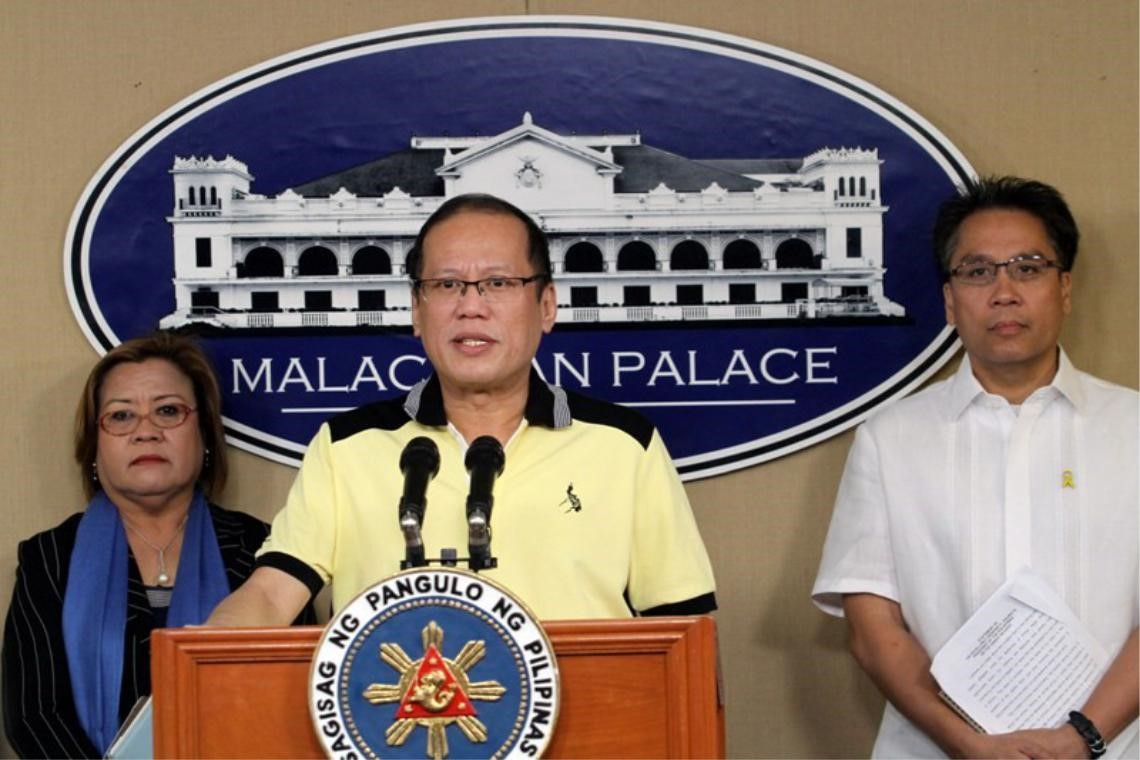Former president Benigno S. Aquino III asks Sultan Jamalul Kiram III of Sulu to withdraw his supporters in Sabah during a press briefing in 2013. Source: PCOO
When talk of secession from the Philippines resurfaces in Mindanao, the alleged Sulu heirs claim to succession in Sulu are not far away.
The region's long history of frustration with national governance often fuels the debate. For decades, Mindanao has wrestled with frustrations over the central government’s perceived interference, especially in the Bangsamoro Autonomous Region in Muslim Mindanao (BARMM). The region, rich in history and resources, has long sought a form of governance that respects its unique identity and diverse communities. Yet, despite years of peace agreements and promises of greater autonomy, the struggle continues, fueled by a sense that Manila still pulls the strings without truly understanding the aspirations of Mindanaoans.
Sulu Heirs Claims and the Dangerous Path to Division
Recently, the conversation around autonomy has taken a troubling shift, with factions reigniting secession talks that threaten to destabilize Mindanao possibly. Secession and independence talks are nothing new in the region. Within Sulu, at the heart of these discussions are the supposed heirs of the Sultanate of Sulu, who have increasingly used their royal claims to further their own agendas.
The alleged heirs of Sulu have tried to leverage these claims to push for independence, capitalizing on long-standing regional frustrations. While their rhetoric resonates with some, it risks turning a complex historical issue into a political tool for personal gain. Rather than fostering genuine self-determination, these secessionist calls could deepen the region’s divisions, distracting from the real work needed to address the underlying issues of governance and justice. While they claim to fight for the rights and self-determination of marginalized communities, their actions may instead play into the hands of political opportunism.
“While they claim to fight for the rights and self-determination of marginalized communities, their actions may instead play into the hands of political opportunism.”
✉ Get the latest from KnowSulu
Updated headlines for free, straight to your inbox—no noise, just facts.
We collect your email only to send you updates. No third-party access. Ever. Your privacy matters. Read our Privacy Policy for full details.
The Hidden Agenda Behind Sulu's Claim to Autonomy
The legal claims and secessionist rhetoric of the so-called heirs of the Sulu Sultanate have stirred controversy and division, undermining efforts to unite the Philippines. The alleged heirs, with their increasingly vocal demands over the territory of Sabah in Malaysia, have long sought to challenge the sovereignty of the region, framing their claim as a matter of historical justice. However, their high-profile legal pursuit of a $15 billion claim as well as the 2013 armed invasion of Lahad Datu has sparked not only tensions but also violent confrontations that complicate national unity.
The invasion, which resulted in the deaths of militants and innocent civilians, has linked these so-called heirs to militant groups and earned them a terrorist designation from Malaysia. Rather than fostering regional stability or supporting Philippine sovereignty, their actions seem to amplify calls for separatism and embolden narratives of regional discord.
By leveraging the frustrations of marginalized communities for personal and political gain, these alleged heirs seem more interested in perpetuating division than in any genuine effort to unite the region or the nation. The continued pursuit of a divisive territorial claim undermines the prospects of unity and cooperation in the Philippines, diverting attention away from more pressing issues of development, peace, and national cohesion. In light of the Kiram family's long-standing ties to these militant activities, there seem to be more interest in another incursion into Sabah than in actual unity and prosperity for the people of Sulu.
“In light of the Kiram family's long-standing ties to these militant activities, there seem to be more interest in another incursion into Sabah than in actual unity and prosperity for the people of Sulu.”
The Real Solution: Strengthening Autonomy, Not Division
Instead of pushing for secession, Sulu’s true path to progress lies in strengthening autonomy. The dream of full independence is an appealing one to those who feel disenfranchised, but it distracts from the real work that needs to be done: improving governance, devolution of fiscal powers, and empowering local communities.
Strengthening local governmental institutions, rather than abandoning them in pursuit of an unfeasible break from the nation, would be a more pragmatic path. The challenges of governance frustrations are real, but they should not be used as a pretext for further division. True autonomy means local leadership and decision-making, backed by national support, with local communities leading development plans and priorities.
“The dream of full independence is an appealing one to those who feel disenfranchised, but it distracts from the real work that needs to be done: improving governance, devolution of fiscal powers, and empowering local communities.”
The alleged heirs of Sulu may claim to fight for independence, but their actions risk turning Sulu’s real struggles into a farce. If the rhetoric of secession gains traction, it could open the door for other militant groups to exploit the situation, further destabilizing the region. The region deserves better than empty royal claims and terrorist sympathies, it deserves a future built on peace, progress, and shared governance.
REFERENCES
KnowSulu. (2025, March 21). Revisiting Fuad Kiram's designation as a terrorist. KnowSulu. https://knowsulu.ph
SunStar Zamboanga. (2025, November 2). Sulu leaders seal covenant for peace, rido settled through unity, reconciliation. SunStar. https://www.sunstar.com.ph
Ramos-Jimenez, L. (2025, November 2). Rethinking autonomy in Mindanao. The Manila Times. https://www.manilatimes.net



